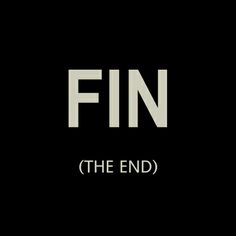Once upon a time, John Steele, the founder of the law firm formally known as Prenda Law, believed he had found the perfect recipe for a successful niche copyright law practice.
First, monitor certain file-sharing websites containing porn and obtain the IP addresses of individuals who downloaded or attempted to download said porn.
Next, file “John Doe” lawsuits for copyright infringement and use the court’s subpoena powers to identify the subscribers associated with the various porn download IP addresses.
Then, send demand letters to the subscribers associated with the IP address, threatening to expose their identities and warning them that the statutory penalty for copyright infringement is up to $150,000 per act of infringement. Offer a quick settlement in the range of $2,500 to $4,000—a fraction of what it would cost to hire counsel, not to mention avoiding the risk of a possible public shaming for downloading porn.
Finally, collect the settlement proceeds. Repeat as often as possible.
Prenda Law shamelessly carried out this business model for several years—first under its own name and then under the name of a successor law firm, the Anti-Piracy Law Group, also owned by Mr. Steele. Steele extracted millions of dollars in settlements.
Unfortunately for Steele and the thousands who were victimized by his actions, there were more than a few ethical “wrinkles” in Steele’s business model.
For starters, there was the fact that Steele’s purported “clients”—the named plaintiffs in the copyright infringement lawsuits—did not really own the copyrights in the films.
Then there was the matter that Steele and his law partner had themselves created the putative “clients” for the purpose of bringing the lawsuits. Steele, for example, formed entities on St. Kitts or Nevis, where secrecy laws enabled the attorney to conceal his ownership interest in those companies.
And there was the further fact that Steele himself actually produced some of the porn films, uploaded them to a website called “Pirate Bay” for the purpose of tracking downloads. Then he would pursue the owners of the IP addresses by suing them and eventually shaking them down for a quick settlement.
Steele also participated in identity theft. He created fictitious copyright assignments purporting to assign the copyrights of the various pornographic films from an individual who had no knowledge that his name was being used to one of the plaintiff entities Steele secretly owned.
Still further, Steele and his law firm would misrepresent to everyone—including courts around the United States—in their lawsuits that the putative “plaintiff” either owned the copyrights or operated computer systems associated with pornographic movies. Based on his lies to the court, Steele and his Prenda Law cabal would use the powers of the court discovery process to find the names of the individuals connected to the IP addresses of interest, who would then be targeted with a settlement shakedown letter.
Steele’s business plan began to unravel in 2013, when some of the “John Doe” defendants began to push back. In one such matter, a federal court found Steele had
Demonstrated [a] willingness to deceive not just [that] Court, but other courts where they have appeared. [Their] representations about their operations, relationships and financial interests have varied from feigned ignorance to misstatements to outright lies. But this deception was calculated so that the Court would grant [their] early discovery requests, thereby allowing [them] to identify defendants and exact settlement proceeds from them.”
In 2016, the Ninth Circuit affirmed the sanctions ruling, finding that Steele and his cohorts engaged in abusive litigation, committed identity theft, and engaged in fraud on the court. Steele has been similarly sanctioned by a number of other courts.
For Steele, things have gone from bad to worse. In December 2016, an 18-count criminal complaint was filed against Steele in Minnesota federal court. In March 2017, Steele pleaded guilty to conspiracy to commit mail fraud and money laundering. The court has not yet set a date for sentencing.
Steele’s antics did not escape the attention of Bar Counsel. A hearing board of the Illinois Attorney Registration and Disciplinary Commission (IARDC) filed a lengthy disciplinary complaint against Steele, a member of the Illinois bar, arising from the Prenda Law debacle.
The IARDC complaint charged Steele with numerous acts of unethical conduct, including: (i) filing suit without a legitimate factual or legal basis; (ii) knowingly disobeying court orders; (iii) making frivolous discovery requests; (iv) engaging in conduct involving fraud, dishonesty, deceit, and misrepresentation; and (v) engaging in conduct prejudicial to the administration of justice.
Ultimately, Steele decided not to fight the Illinois Bar. He consented to disbarment.
On May 18, 2017, the Supreme Court of Illinois entered an Order disbarring Steele on consent. In its Order entering Steele’s disbarment, the Court concluded that Steele had engaged in “a multi-jurisdictional copyright litigation scheme in which [Steele] and others abused the judicial system to exact settlements from tens of thousands of internet users who allegedly infringed on the copyrights of the owners of pornographic movies, including movies that [Steele] himself produced and distributed. Under the guise of fighting against piracy, [Steele] and his associates misled state and federal courts across the country into giving them the power to subpoena internet service providers (“ISPs”) so that they could identify individuals from whom they garnered quick settlements based on the threat of substantially larger statutory damages and unwanted publicity.”
Steele’s days of copyright trolling, as well as his law career, are done. Steele now awaits the final act in the Prenda Law saga–sentencing for his conspiracy convictions.
